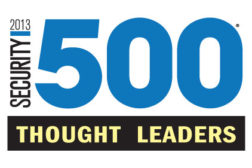- NEWS
- MANAGEMENT
- PHYSICAL
- CYBER
- BLOG
- COLUMNS
- EXCLUSIVES
- SECTORS
- Arenas / Stadiums / Leagues / Entertainment
- Banking/Finance/Insurance
- Construction, Real Estate, Property Management
- Education: K-12
- Education: University
- Government: Federal, State and Local
- Hospitality & Casinos
- Hospitals & Medical Centers
- Infrastructure:Electric,Gas & Water
- Ports: Sea, Land, & Air
- Retail/Restaurants/Convenience
- Transportation/Logistics/Supply Chain/Distribution/ Warehousing
- EVENTS
- MEDIA
- MORE
- EMAG
- SIGN UP!
Hospitals & Medical Centers
CentraCare improves patient care and strengthens security with Axis network cameras
New HD Cameras Help Increase Security at Sites
Watching Over Staff and Patient Safety at Alberta Health Services
November 15, 2013
Gordon M. Snow: Investing in Human Capital
“Our job is to provide exceptional care, service and quality through cost reductions, by performing more powerfully and continually refining our security and business acumen in parallel.”
November 5, 2013
Reducing Stress with Hospital Parking Security
Visiting a hospital is stressful enough; how can simplifying parking with security reduce that burden?
September 1, 2013
Sign-up to receive top management & result-driven techniques in the industry.
Join over 20,000+ industry leaders who receive our premium content.
SIGN UP TODAY!Copyright ©2025. All Rights Reserved BNP Media.
Design, CMS, Hosting & Web Development :: ePublishing






